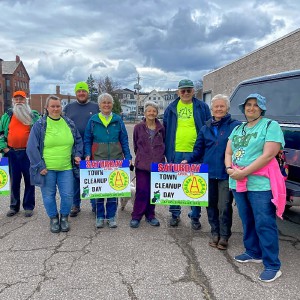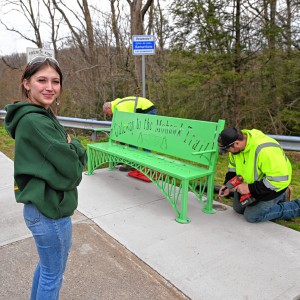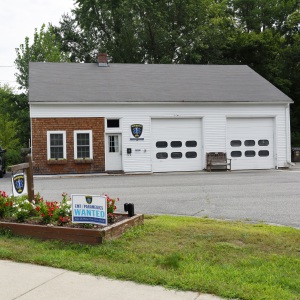The Real Score: Curveballs and casinos rarely save cities

| Published: 04-18-2024 4:18 PM |
About 10 years ago, the two major urban centers of central and western Massachusetts decided to engage in new regional industrial policy to spur on their local economies. Worcester and Springfield had been effectively hollowed up by decades of American deindustrialization, and the respective leaders of the cities felt direct action was necessary to reverse this structural decline.
While both enjoyed significant prosperity during the Gilded Age of America, the industries that built the regional wealth — arms production and heavy manufacturing for Springfield, machinery and power looms for Worcester — suffered locally from a combination of reduction in market demand as well as outsourcing of production to lower cost labor markets around the nation and world. Both cities peaked in their wealth during the post-war era, with Springfield residents outpacing the nation in household wealth and Worcester still serving as a critical manufacturing hub of the region. But by the 1980s, both cities were hemorrhaging their people to the suburbs and their industries to cheaper production markets. Worcester’s decline began to slow in the early 2000s, while Springfield’s continued through the Great Recession.
With that as our backdrop, it’s understandable why city leaders felt the need to take direct action to shake off the post-war decades. Worcester decided to invest directly in bringing the Pawtucket Red Sox into Kelley Square, while Springfield chose a different path and accommodated the entrance of MGM into the South End neighborhood. Although both of these industries have unique quirks that differentiate them, they are often utilized by cities as tools for regional economic development. Indeed, this was the logic underpinning Worcester’s sales pitch to the PawSox: we want minor league baseball in our town so badly that we’ll give you nearly $200 million of public money to build here, because we believe the jobs that will be created will pay down this cost over time. Whereas Springfield negotiated a lucrative host agreement with MGM — thereby structuring payments to the city as opposed to paying the private organization subsidies from the city — they still viewed the entrance of gambling into the regional economy as a key cog in its redevelopment. As ground broke on the new operation on Main Street, the economists who were paid by the project proponents promised hundreds of direct jobs at the facility, with potentially thousands more to come from positive spillover effects.
Now that both entities have been open to the public for several years, it’s a reasonable time to look back and check out how these promises and projections turned out. To avoid burying the lede further, the consultants and city leaders have some explaining to do.
Let’s start with the results from Worcester. The original tax subsidy to lure the franchise over from Rhode Island was a $100 million offer, but that ballooned to $189 million by January of 2020 as more costs were discovered. Although city officials promised that public taxes wouldn’t be used to fund this subsidy, that pledge was entirely reliant on tax revenues increasing significantly in the special district surrounding the newly built Polar Park. The tax revenue growth hasn’t materialized even close to the level it would need to in order to cover the debt payments for the city — and frankly, it was absurd to assume it would. To understand why, we need to grasp the lessons of the broken window fallacy.
As the economic parable goes, a young boy ventures into the city center where shops line all the streets. He picks up a rock and proceeds to hurl it through the window of the local baker. The townspeople gather around to condemn this young man for his actions, but unfortunately for all, there was a contrarian economist in the crowd. The economist told the crowd that they needed to calm down, as this boy had done nothing wrong. Instead, think of the economic stimulus he just provided. The baker will now need to pay the glassmaker to repair their window. The glassmaker will take that revenue and buy shoes for his children. The cobbler will take that money and stock back up on inventory. The ripple effect of this will continue along the regional economy, thus improving the finances of every household. If anything, we should all mimic the young boy’s behavior and smash even more windows!
Of course, this is a silly thought exercise. If the boy hadn’t smashed the window, the baker would’ve simply spent that money elsewhere in the economy. In this sense, the window smashing didn’t create net new economic activity; it shifted where the consumption would occur locally. We simply see the new window go up with our eyes, while the unseen opportunity cost remains hidden to the public.
The same logic applies for our WooSox investment. While it’s always easy to see the brand-new stadium in downtown and the flocks of fans going through the turnstiles, it’s more difficult to assess the locals who avoid the area when games are occurring, or the projects that went unfunded because of budgetary constraints introduced by the massive tax subsidy provided. Therefore, any project that relies on significant tax revenue growth to fund its debt payments is likely to be woefully miscalculated in the beginning, as the “seen” effects — new consumers in the stadium — often fail to outweigh the unseen effects of crowding out other spending.
Article continues after...
Yesterday's Most Read Articles
 Carol Doucette of Royalston receives $15,000 from Publishers Clearing House
Carol Doucette of Royalston receives $15,000 from Publishers Clearing House
 Athol town-wide cleanup deemed ‘a huge success’ by organizers
Athol town-wide cleanup deemed ‘a huge success’ by organizers
 Byron Coley: Shores Ness for Select Board
Byron Coley: Shores Ness for Select Board
 Franklin Tech student welds ‘artistic’ bench for French King Bridge
Franklin Tech student welds ‘artistic’ bench for French King Bridge
 Partnership hopes to address Lake Ellis stormwater runoff
Partnership hopes to address Lake Ellis stormwater runoff
 State documents show Northfield EMS chief’s paramedic license suspended over failure to transport infant
State documents show Northfield EMS chief’s paramedic license suspended over failure to transport infant
A bit closer to home, Springfield chose a different strategy. Rather than subsidize professional sport to move in, Springfield opted to allow MGM to build a new casino in the heart of downtown. As part of this deal, MGM promised hundreds of jobs directly to the Springfield community, along with significant annual payouts to local communities. While the jobs have failed to materialize, these community impact payments have come under new scrutiny as MGM seeks to potentially exit their investment in the city. These payments are fairly unique to the gaming industry. After all, what private business has to pay surrounding towns millions of dollars each year just for the right to continue existing? A parasitic one.
At their core, the community host agreements give away the whole game. MGM delivered about two-thirds of the direct jobs they promised, but these community impact payments were designed to mitigate the projected harm MGM might do to surrounding locales. This wasn’t due to projections of increased traffic or commute times, but rather the expectation that increased supply of local gambling options would likely increase gambling addiction in the community, which would create negative externalities for the towns and cities in question. While consenting adults should be free to let loose a bit in a casino parlor, basing the economic recovery of your downtown on addiction certainly seems like a bet that’s unlikely to cash out. We often have dreams of casinos being magnets that draw in visitors from all over, but several years in they tend to devolve to little more than locals shoveling money into a multinational furnace.
I don’t begrudge the leaders of these two cities for looking to sport and gaming to pull Worcester and Springfield out of their post-industrial slog. Cities and towns this side of 495 tend to be ignored by the leadership on Beacon Hill, and both projects have seen some positive spillover effects to at least partially mitigate the negative consequences and mounting debt payments. But unfortunately, neither baseball nor baccarat have proven to be effective anchors of regional economic development. Rather, it’s the incremental and boring stuff —improved schools, expanded public transit, affordable housing, accessible cultural amenities — that rebuild urban centers and lead to renewal. So moving forward, don’t look to the slots as your leading indicator of future civic success. Look to the schools.
Brett Albert is a Senior Lecturer in the McCormack Department of Sport Management at UMass, where he focuses on the regional economic impact of sport and entertainment on local communities. He also runs Rumspringa Books in downtown Springfield. He can be reached at balbert@isenberg.umass.edu

 H.S. Roundup: Pioneer boys basketball pulls away from Hopkins
H.S. Roundup: Pioneer boys basketball pulls away from Hopkins  UMass basketball: Saint Joseph’s hands Minutemen another heartbreaking loss 78-77
UMass basketball: Saint Joseph’s hands Minutemen another heartbreaking loss 78-77 H.S. Roundup: Caleb Murray’s 20 points powers Greenfield boys basketball past Frontier (PHOTOS)
H.S. Roundup: Caleb Murray’s 20 points powers Greenfield boys basketball past Frontier (PHOTOS) Local Roundup: Big fourth quarter lifts Mahar girls basketball past Easthampton
Local Roundup: Big fourth quarter lifts Mahar girls basketball past Easthampton